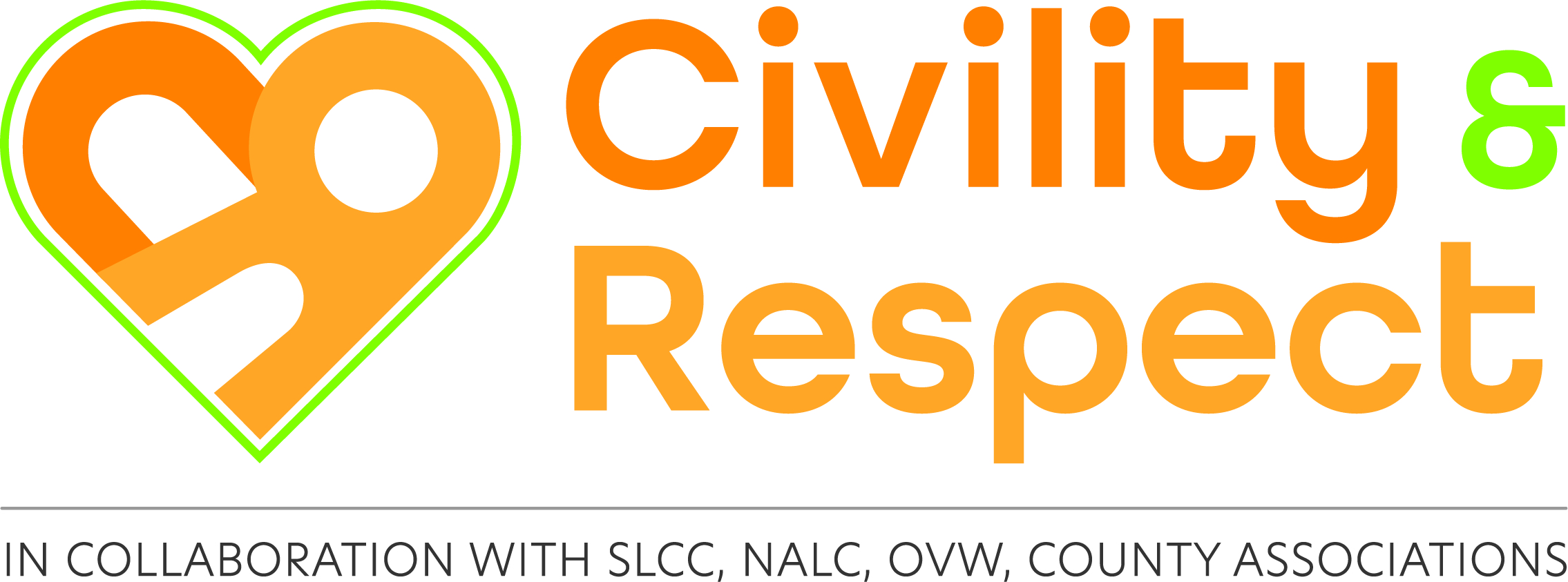Throughout the sector, there are growing concerns about the impact bullying, harassment and intimidation is having on councils, councillors and staff and the resulting effectiveness of local councils. In response, the Civility and Respect Project has been founded by the Civility and Respect Working Group and is supported by representatives from across the sector including SLCC, National Association of Local Councils (NALC) councils, County Associations and One Voice Wales (OVW).

Mission Statement
The Civility and Respect Project Working Group set out a mission statement summarising the core aims and values for securing permanent change in the sector:
‘Civility and respect should be at the heart of public life and good governance is fundamental to ensuring an effective and well-functioning democracy at all levels.
The intimidation, abuse, bullying and harassment of councillors, professional officers and staff, in person or online, is totally unacceptable; whether that is by councillors, professional officers, staff or members of the public.
This can prevent councils from functioning effectively, councillors from representing local people, discourage people from getting involved including standing for election, and undermine public confidence and trust in local democracy.
National Association of Local Councils (NALC), county associations of local councils and One Voice Wales (OVW), as the membership organisations representing the first tier of local government in England and Wales, and Society of Local Council Clerks (SLCC) as the professional body for clerks, are committed to working together to promote civility and respect in public life, good governance, positive debate and supporting the well-being of councillors, professional officers and staff.
To that end the Group will be working to deliver tangible resources, actions and interventions in four main areas: providing councils with the tools to support good governance; lobbying to strengthen the standards regime and encourage more people to get involved; training; and processes to intervene to provide support to struggling councils.’
Project Workstreams
The group has identified a significant number of changes and improvements considered vital to provide support to help reduce and manage the issues related to bullying and harassment in the sector. These factors have been organised into six project workstreams that will deliver on the mission statement.
1. Training
A key step in creating a safe and inclusive environment for local councils is making all councillors, clerks and council staff aware of the issues, what is — and what is not —acceptable. Knowing how to recognise and address bullying, harassment, discrimination, and inclusion is an important step in its prevention.
Training ensures that councils demonstrate that they do not tolerate these types of behaviour and provide the tools to intervene immediately, consistently, equitably, and appropriately when bullying occurs.
2. Governance
Bullying can have a detrimental effect on officers and is corrosive to leadership. It could lead to decision-making that is not in the public interest and a failure of standards and governance.
Good governance is one of the building blocks of anti-bullying and harassment and is fundamental to ensuring an effective and well-functioning democracy at all levels.
3. Intervention
Sometimes relations in a council deteriorate beyond the ability to be repaired by the implementation of, and adherence to, good governance and comprehensive training of staff and councillors.
The council may have recognised that it cannot restore effective leadership, functionality and civility without some support.
The project team is working on some strategies to support struggling councils.
4. Legislative
The Committee on Standards in Public Life (CSPL) undertook a review of Local Government Ethical Standards and, in January 2019, produced a report comprising 26 recommendations for legislative changes. The resulting recommendations included:
- The ability for the principal authority to impose sanctions on a parish councillor following a review.
- The ability for a local authority to suspend councillors.
- Mandatory training for clerks.
The lobbying of the government to implement these, and other recommendations, is ongoing within NALC and SLCC. The project will highlight the ongoing action taken to progress these and other legislative changes.
5. Collaboration
The project team is working closely with the Local Government Association (LGA), Lawyers in Local Government (LLG) and other associations navigating their way through similar sector issues.
6. Enabling
The enabling workstream makes bullying and harassment information and supports accessible to clerks and councils.

